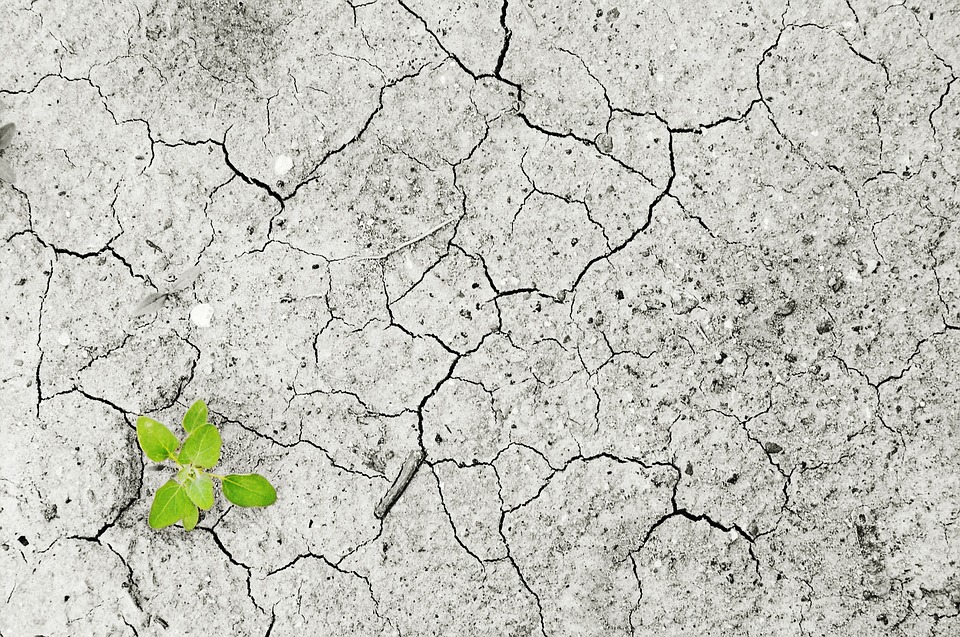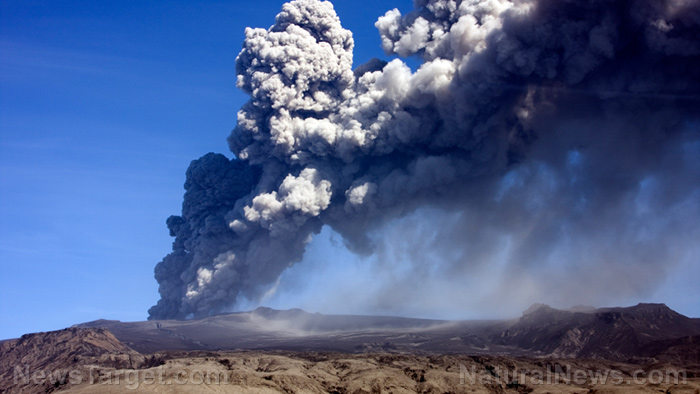Report: Chinese banks second-largest financier of products linked to rainforest deforestation
12/04/2021 / By Nolan Barton

A new study revealed that Chinese financial institutions are the world’s second-largest financier of commodities implicated in tropical rainforest deforestation. The study casts doubt on China’s ambitions to be a global leader in the fight against climate change.
Brazil, the world’s largest producer of soy and the second-largest producer of beef, is the largest financier of forest-risk commodities in the world.
Data analyzed by Forests & Finance, a global coalition of non-governmental organizations, showed that from January 2016 to April 2020, Chinese institutions provided $15 billion in loans and underwriting services to companies that traded in commodities linked to deforestation in Southeast Asia, Brazil and Africa.
The more than 300 companies included in the study are a representative sample of companies impacting or causing potential harm to tropical forests, wetlands and communities. Chinese companies involved in trading pulp and paper, palm oil, soy, rubber and timber largely operate overseas and are often funded by Chinese banks, highlighting the international footprint of the country’s financial sector.
A closer look at the geographic and sectoral breakdown of Chinese financial institution credit flows shows that $10.2 billion was attributable to forest-risk commodities in Southeast Asia. Approximately half of this financing was attributable to pulp and paper.
Chinese financial institutions provided $2.8 billion in forest-risk loans and underwriting services attributable to Central and West Africa – 79 percent of this was attributable to rubber and 21 percent to timber.

The majority of Chinese forest-risk financing in Brazil was attributable to soy.
Chinese banks “unwittingly” support soy-related deforestation
China imports more than 60 percent of the world’s soy, which means the country could play a major role in halting deforestation and slowing climate change if companies and banks focus on stopping deforestation to grow the crop.
Around 490 square kilometers (189 square miles) of land in Brazil was cleared for soy headed for China in 2017 – about 40 percent of all “converted” land in Brazil that year.
According to a separate 2019 report by nonprofit disclosure platform CDP, Chinese financial institutions have little awareness about the risks of deforestation in the soy supply chain. CDP is an international platform for the disclosure of environmental risks.
“Chinese companies and financial institutions operating within the soy sector demonstrate extremely limited awareness and action to mitigate forest-related risks with potentially grave consequences for forests,” Morgan Gillespy, the director of forests at CDP, said at the time.
CDP traced the funding to some 30 Chinese soy-related companies, ranging from importers to animal feed manufacturers to livestock breeders. (Related: Burger King buys animal feed from soybean plantations that burn rainforests to the ground.)
The organization’s analysis of the supply chain to China revealed that $2.1 billion worth of loans to these companies bear the risk that they may have financed deforestation. More than $7 billion of bonds and shares to underwrite these companies also carry a similar risk.
“China is an important player in the global commodities market,” Gillespy said. “By demanding deforestation-free commodities, Chinese companies and financial institutions can play a huge role in tackling commodity-driven deforestation while ensuring they effectively mitigate their exposure to forests-related risks.”
Global banks bolstered their sustainability pledges in recent years as a way to stave off the bad press that comes with being associated with deforestation.
HSBC required clients in the soy sector to be certified by the Round Table on Responsible Soy after numerous reports tied funding flows from the bank to companies accused of deforestation as well as human rights violations.
London-based HSBC, which finances a lot of palm oil production in Southeast Asia, required that its clients adhere to the requirements for membership in the Roundtable on Sustainable Palm Oil.
China’s investments overseas run counter to Xi Jinping’s “carbon neutrality” pledge
President Xi Jinping pledged last year that China would reach “carbon neutrality” by 2060. But the country’s overseas investments and lending for environmentally risky infrastructure and trade run counter to Xi’s bold target.
The state-owned Industrial and Commercial Bank of China was the largest provider of loans and underwriting services in the Forests & Finance’s database at $2.2 billion. Sinochem, a Chinese state-owned chemicals group, was the largest recipient, collecting $4.6 billion, most of it for its rubber business.
The trade of commodities included in the database accounted for about two-fifths of deforestation globally. Research suggests that it contributed about 5 percent of annual greenhouse gas emissions through its effect on deforestation alone.
“The world’s big economies talk big on climate action yet continue to turn a blind eye to their own banks funding tropical deforestation,” said Tom Picken of the Forests & Finance coalition.
Picken explained that the aim of the database was to demonstrate the huge flow of financing from Chinese banks that fell below the standards of “green financing” and to press Chinese banks to adopt stricter safeguards to avoid funding deforestation.
“There are currently few implications for banks found to be even knowingly funding illegal deforestation overseas,” he said. In 2017, the Chinese banking system overtook that of the eurozone to become the world’s largest by assets. There are also signs of its growing influence in other developing economies.
A research paper from the Bank for International Settlements last year found that Chinese banks have become the biggest cross-border creditors for about half of emerging and developing economies globally. The paper noted that their lending activity “strongly correlates with trade.”
Follow Environ.news for more news and information related to the environment.
Sources include:
Tagged Under: carbon neutrality, China, Chinese banks, deforestation, deforestation-free commodities, Ecology, financial institutions, forest-risk commodities, green financing, Greenhouse Gas, greenhouse gas emissions, human rights violations, rainforest, Xi Jinping




















